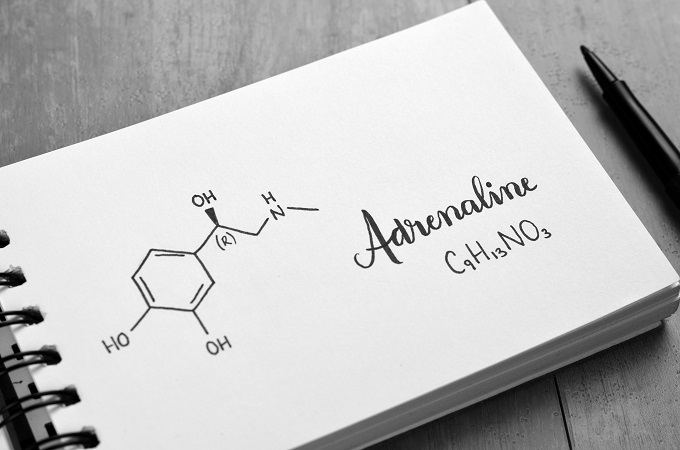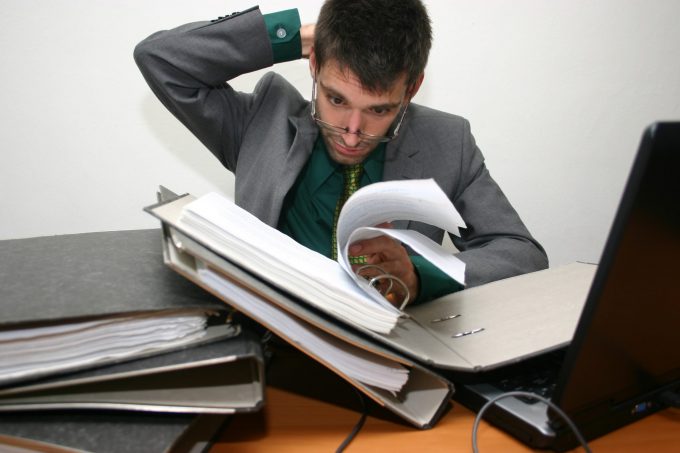Are you always busy?

The most common response you’ll hear when you ask someone who works in a school how they are, is, “Busy”.
Being busy has acquired a new status. It is now equated with importance.
 Many educators only know two speeds – flat out and asleep. We often rush from one priority or crisis to another. While we often feel overloaded, somewhere inside we also like the sense of being indispensable and in-demand. This is typical of an adrenaline junkie. Adrenaline junkies are susceptible to packing their days to the brim. The trap is that being busy can add up to lots and lots of activity that isn’t all that productive in the end.
Many educators only know two speeds – flat out and asleep. We often rush from one priority or crisis to another. While we often feel overloaded, somewhere inside we also like the sense of being indispensable and in-demand. This is typical of an adrenaline junkie. Adrenaline junkies are susceptible to packing their days to the brim. The trap is that being busy can add up to lots and lots of activity that isn’t all that productive in the end.
In his book “The Advantage”, Patrick Lencioni highlights ‘The Adrenaline Bias’. “Many leaders suffer from a chronic case of adrenaline addiction, seemingly hooked on the daily rush of activity and firefighting within their organization” (2012). I believe that many educators suffer this bias.
The feeling of an adrenalin high is addictive as it gives you a ‘rush’. When you are on adrenalin you think quickly, talk quickly, eat quickly and even finish other people’s sentences. You try to be ‘on’ 100% of the time. However, the rush that we get from adrenalin is not sustainable and isn’t helping us. If the entire day is fueled by adrenaline, it can lead to burnout and also makes you less fun to be around. If you have been an adrenaline junkie for some time, you may have lost the ability to relax (Church 2007, page 29).
There are two ways to get a natural high – one from adrenalin, which makes you feel switched on for short bursts; the other from serotonin, which makes you feel calm and comfortable for longer periods. The real natural high comes from an appropriate balance of both adrenaline and serotonin. The first step is becoming aware that you may be an adrenaline junkie.
If you do everything in fast forward you need to slow down and make some space in your life. When you learn to switch onto adrenalin only when you need to, and manage the rush in a healthy, balanced way, you can be naturally high more often, rather than using your ‘drug’ to get through everyday life (Church, 2007, page 29).
Here are 12 actions you can implement immediately.
Take responsibility for your own personal wellbeing
Many educators put themselves last. They work long hours tirelessly trying to be all things to all people. Looking after your own wellbeing needs to be a priority.
Undertake a thorough health
appraisal every year
Early detection is often better than pursuing a cure.
Replace the term work-life balance
with work-life satisfaction
‘Balance’ can be very difficult to achieve. It is more important that we get satisfaction from our work as well as the other aspects of our lives. Instead of aspiring for work-life balance, aim to get work-life satisfaction.
Set boundaries on your work hours
No matter how many hours you work, there is always more that could be done. It is vital to set boundaries to stop work overtaking and having an impact on the other aspects of your life. Which day of the week could you leave school at 3.30 pm and do something for you?
Monitor your self-talk
It is vital that you monitor that little voice inside your head and ensure that your expectations of yourself are reasonable. At times educators can be our own harshest critic. At the end of each day you should reflect on what you have achieved and not be too harsh on yourself if there are still tasks on your to-do list. School days can be unpredictable.
Prioritise ruthlessly
Time is one of the most precious resources you have. It is vital that you use it well. Ask yourself often, “Is this the most important thing I could be doing with the time I have available?” A good way to feel that you are gaining traction is to identify at the beginning of each day, one important task that you need to make sure is completed that day, for that day to feel successful.
Clearly communicate that harassment
and violence are NOT tolerated
It is a sad reflection on our society that many public hospitals now display “Zero Tolerance to Abuse” signs clearly communicating that harassment and violence towards staff will not be tolerated.
Book a holiday – every break
It is vital that you take some time each school holidays to rest and recharge. A holiday doesn’t have to be extravagant. Even if you only go away for a night or two, the change of scenery and short break are worthwhile. The anticipation of the holiday can be almost as good as the holiday itself.
Establish and commit to
an exercise routine
Exercise has benefits for both our physical and mental health. Establishing an exercise routine is one of the most powerful actions you can take. Often when people get busy and stressed, the first thing they stop doing is exercising. Yet exercising is the best thing they could do for their well-being.
Stop for lunch
We know eating well is important to looking after our health but we often skip lunch, eat on the run or at our desk. Take at least 15 minutes away from your desk to stop and eat lunch.
Drink more water
We should drink at least 2 litres of water per day. This equates to about 8 glasses of water.
Seek expert help if feeling over-whelmed
If you are feeling over-whelmed, seek professional support. It is not a sign of weakness but a recognition of the real complexity of the role you play.
Time for some tough love!
Are you hooked on the adrenaline of being ‘busy’ and feeling ‘needed’?
Are your own expectations of yourself realistic?
Is your self-talk positive or are you your harshest critic?
REFERENCES
Church, M 2007, High Life 24/7 – Balance Your Body Chemistry and Feel Uplifted, Thought Leaders, Sydney, Australia.
Lencioni, P 2012, The Advantage – Why Organizational Health Trumps Everything Else in Business, Jossey-Bass, San Francisco, United States.







